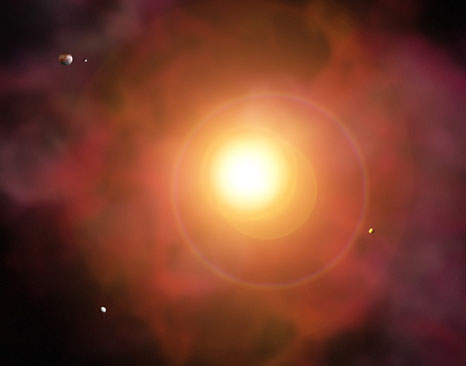Grammatical Analysis
- A faraash–a moth. This is post #31 in our series on Tafseer of Juz ‘Amma (click the link to see all posts in this series). As per the poll on our twitter account, there was consensus on their being a post on grammatical analysis of Surah Qaari’ah. So here you go insha’Allah. Standard Disclaimer: I am not an Arab (as in, fluent in Arabic) nor have I double-checked this in books of ‘ulama discussing grammar; there is sometimes difference of opinion in grammar, as well; so take it as such insha’Allah.
Tafseer of Surah Tawheed
This is post #23 in our series on Tafseer of Juz ‘Amma (click the link to see all posts in this series). Allah says, in Surah Tawheed, also known as Surah Ikhlas: قُلْ هُوَ اللَّهُ أَحَدٌ اللَّهُ الصَّمَدُ لَمْ يَلِدْ وَلَمْ يُولَدْ وَلَمْ يَكُن لَّهُ كُفُوًا أَحَدٌ Translation: Say, “He is Allah , [who is] One, Allah , the Eternal Refuge [As-Samad], He neither begets (gives birth to) nor is born, Nor is there to Him any equivalent.Arabic Explanation of Surah Takweer
Note: This is post #17 in our series on Tafseer of Juz ‘Amma.
 When the sun is kuwwirat …
When the sun is kuwwirat …We’re going to digress a bit and jump back to Surah Takweer. This post is based on Shaykh Nouman Khan’s tafseer, which heavily emphasizes the Arabic language. I hope you will find, as I found it, as a glimpse of a previously-unseen world, a depth of knowledge that just drips from the Arabic language.
Allah says, in surah Takweer:
إِذَا الشَّمْسُ كُوِّرَتْ
Translation: When the sun is kuwwirat … [verse 1]
There are a lot of gems that we learn even from this first ayah:
- Idhaa + Past-Tense: Idhaa is an indicator of future-tense “when (something will happen).” Yet, kuwwirat is past-tense; why? This combination means something is so certain, it’s like past-tense. So Allah is saying “when this happens,” yet it’s certain that it WILL happen; as certain as the past is past.
- Nominal Sentence: The default in Arabic is to put the verb first–“kuwwirat ash-shamsu.” To reverse this into “ash-shamsu kuwwirat,” shows emphasis, and makes it a tougher, stronger sentence. This hints at the audience–Mushrikeen in Mecca, the worst and most obstinate of them, who are listening to this revelation.
- Passive Voice: Allah could have said, “When I wrap up the sun,” but He didn’t. Why? If you’re biased against someone (say a political party), no matter what they say, even before they open their mouth, you say, “psshh.” But here, passive-voice highlights the maf’ool, the recipient of the action–the sun, the stars–instead of the doer.
As for the meaning of kuwwirat, kawwara means to wrap something around something; it’s used in the context of a turban, something long, that’s wrapped around your head.
Allah is applying the same meaning here–that the light of the sun, something that’s long, will be kuwwirat, wrapped up. Wrapped up meaning, something will cover it, and it will no longer be visible; and it will be wrapped slowly, part by part disappearing–the same way that Allah described the day as wrapping around the night and the night wrapping around the day.
This is something scary–that you see the sun wrapped up, and losing its light. But there’s more …
Tafseer of Surah Lahab
Note: This is post #7 in our series of Tafseer of Juz ‘Amma. Most of us know Surah Lahab. It’s one of the first one Muslim children learn these days. We’re going to breeze through the tafseer, then dive into one of the miracles, and finish up with some Arabic analysis. Allah says: تَبَّتْ يَدَا أَبِي لَهَبٍ وَتَبَّ مَا أَغْنَى عَنْهُ مَالُهُ وَمَا كَسَبَ سَيَصْلَى نَاراً ذَاتَ لَهَبٍArabic Analysis for First Revelation
This is the second post in our series of Tafseer of Juz ‘Amma. The first five ayaat of Surah Iqraa are: اقْرَأْ بِاسْمِ رَبِّكَ الَّذِي خَلَقَ خَلَقَ الْإِنسَانَ مِنْ عَلَقٍ اقْرَأْ وَرَبُّكَ الْأَكْرَمُ الَّذِي عَلَّمَ بِالْقَلَمِ عَلَّمَ الْإِنسَانَ مَا لَمْ يَعْلَمْ Word-for-word translations are pretty common these days (like this one, which has Surah Iqraa), so I’m going to touch lightly on that, and do a bit more grammar.